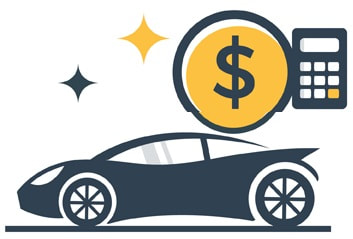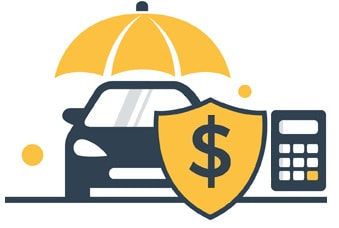Compare the Best EV Loans - July 2024
Looking to finance your new or used electric vehicle? Our guide covers all you need to know about EV loans. We explain how to get the best deal, eligibility requirements, and important considerations to ensure you don't overcommit to financing terms you can't afford.
Updated 18 July 2024
Summary:
To help you understand your options and get the best deal, our guide covers:
Advertising Disclosure: We may receive a commission if you take out a loan, but this does not influence our shortlist. Interest rates vary based on each borrower.
- Electric vehicles are increasingly popular throughout New Zealand; our guide is published to help you decide on the best finance option for your new or second-hand electric car.
- With petrol hovering around $3/litre, EVs are attractive for their low running costs, purchase subsidy and strong resale value.
- However, EVs can be expensive to buy outright, which means many specialist lenders and banks widely offer EV finance.
- EV finance works just like any other type of car finance; you find a car you want to buy and borrow the amount you need to pay from a lender. You'll pay a deposit (in most cases) and then agree to an interest rate and repayment terms - for example, weekly or fortnightly.
To help you understand your options and get the best deal, our guide covers:
- How Much Will EV Finance Cost?
- What Government Help is Available When Financing an EV?
- The Upfront and Ongoing Costs of Owning an EV
- Frequently Asked Questions
Advertising Disclosure: We may receive a commission if you take out a loan, but this does not influence our shortlist. Interest rates vary based on each borrower.
Some Banks Offer EV Loans - But Be Careful You Don't Get Stuck With a Long-Term Debt Attached to Your Mortgage
|
Two banks offer low-interest loans for EVs - ANZ and BNZ. However, you'll need at least 20% equity in your home, and a mortgage top-up fee may apply when you draw down an EV loan.
ANZ and ASB offer the following:
Know This: The cheap interest rate only lasts for three years. After that, the 1% interest rate transitions to the ANZ and ASB's Variable (Floating) Rate and is added to your mortgage, where you can re-fix or keep it floating. We believe this can potentially increase the overall cost of borrowing (e.g. total interest costs paid) compared to a standard 2 to 5-year car loan. Important: You must be an existing home loan customer of the bank offering the loan; you'll need a minimum equity of 20% for owner-occupied properties and 40% for investment properties. Construction loans are not eligible for the special EV finance offers. Once the How Bank EV Loans Work:
MoneyHub Founder Christopher Walsh comments: "While the 1% interest rate may seem like a great deal now, you need to anticipate what lies ahead. After the initial three years, your loan shifts to the Variable (Floating) Rate, essentially merging with your mortgage. While you can re-fix or let it float, adding more money to a 10-20+ year mortgage is arguably a step backwards considering the increased total interest outlays." Other banks offering EV loans If you don't bank with ANZ or ASB, Westpac and Heartland offer specialist EV loans, but we don't see these as market-leading but rather EV-branded personal loans. The loans offered may be more expensive than a speciality lender:
|
Christopher Walsh
MoneyHub Founder |
Can I buy a new or secondhand electric vehicle with car finance?
Yes - most lenders are more than willing to lend on both new and used cars, and as the secondhand market continues to grow, this is increased choice and increasingly competitive pricing.
Am I eligible to buy an electric car on finance?
Your eligibility to buy an electric car on finance will depend on several factors. For example, you must be a certain age (normally 18) to be eligible for car finance and be able to afford repayments. You will also need a healthy credit history - any past problems will make a lender reluctant to approve the loan, or you'll be charged a higher interest rate.
Important: For many New Zealanders, car finance is a crippling ongoing expense. Please do not commit to financing terms you can't afford - it's too risky and stressful, and for a car (or EV), it's not worth it. If you struggle to pay off a credit card balance, miss a few payments and don't have savings, we strongly suggest reducing the amount you plan to borrow (or not borrowing at all) to avoid potential problems later on.
Important: For many New Zealanders, car finance is a crippling ongoing expense. Please do not commit to financing terms you can't afford - it's too risky and stressful, and for a car (or EV), it's not worth it. If you struggle to pay off a credit card balance, miss a few payments and don't have savings, we strongly suggest reducing the amount you plan to borrow (or not borrowing at all) to avoid potential problems later on.
How Much Will EV Finance Cost?
The total cost is driven by how much you need to borrow, the interest rate and the loan term (for example, how long you agree to repay).
In the table below, we illustrate three examples of common car loan amounts, interest rates and ongoing repayment costs. The interest rate you agree to will drive the cost of the total loan, so it's critical to compare to secure the best offer.
In the table below, we illustrate three examples of common car loan amounts, interest rates and ongoing repayment costs. The interest rate you agree to will drive the cost of the total loan, so it's critical to compare to secure the best offer.
Interest Rates: |
8.50% |
12.99% |
18.95% |
Car Price |
$25,000 |
$37,500 |
$15,000 |
Term of Loan |
24 months (2 years) |
60 months (5 years) |
36 months (3 years) |
Amount Borrowed |
$25,000 (100%) |
$30,000 (80%) |
$15,000 |
Monthly Repayment Cost |
$1,136 |
$853 |
$549 |
Weekly Repayment Cost |
$262 |
$196 |
$126 |
Total Interest Paid (Based on Monthly Repayments) |
$2,273 |
$13,683 |
$4,781 |
Specialist EV Finance Lenders Actively Lending:
Our list below includes lenders who specifically target New Zealanders buying an EV:
MoneyHub's Top EV Loan Options - Avoid high interest rates and fees with our trusted lenders:
|
Christopher Walsh
MoneyHub Founder |
Our Trusted and Affordable Car Lenders Committed to Fast Quotes:
|
Other Options:
|
Westpac
|
|
AA Money
|
|
Heartland Bank
|
|
UDC
|
|
MTF Finance
|
Estimate Your EV Loan Costs with Trusted Lenders:
Enter Loan Information
Amount to Borrow
Repayment Period (Months)
Repayment Frequency
What Government Help is Available When Financing an EV?
The government offers several incentives and programs to encourage EV purchases and make it more affordable for individuals to finance them. These include:
1. Clean Car Discount
The Clean Car Discount is available to those purchasing new or used light EVs or plug-in hybrids, depending on the vehicle's emissions. To be eligible for a rebate, the vehicle must be first registered in the country after 1 April 2022, have a safety rating of 3 stars or more, and cost less than $80,000 including GST and on-road costs. In addition, the vehicle's CO2 emissions determine the rebate amount, ranging from $3,000 for zero-emissions vehicles to $7,500 for vehicles emitting up to 56 grams of CO2 per km.
2. Fuel Tax Exemption
As EVs don't consume petrol or diesel fuel, EV owners are not required to pay the road user charges (RUC) or the excise duty levied on petrol and diesel vehicles. However, taxes are a significant component of fuel prices - around 10% to 20% of a litre of petrol. Per guidance from the NZTA, "light electric vehicles (gross laden weight 3500kg or less) are exempt from RUC until 31 March 2024 per NZTA".
Know This: While EV owners don't have to pay fuel taxes, they are still required to pay other fees, such as registration and licensing fees, as well as any applicable tolls.
1. Clean Car Discount
The Clean Car Discount is available to those purchasing new or used light EVs or plug-in hybrids, depending on the vehicle's emissions. To be eligible for a rebate, the vehicle must be first registered in the country after 1 April 2022, have a safety rating of 3 stars or more, and cost less than $80,000 including GST and on-road costs. In addition, the vehicle's CO2 emissions determine the rebate amount, ranging from $3,000 for zero-emissions vehicles to $7,500 for vehicles emitting up to 56 grams of CO2 per km.
- More details: NZTA's dedicated page explains what you need to know
2. Fuel Tax Exemption
As EVs don't consume petrol or diesel fuel, EV owners are not required to pay the road user charges (RUC) or the excise duty levied on petrol and diesel vehicles. However, taxes are a significant component of fuel prices - around 10% to 20% of a litre of petrol. Per guidance from the NZTA, "light electric vehicles (gross laden weight 3500kg or less) are exempt from RUC until 31 March 2024 per NZTA".
Know This: While EV owners don't have to pay fuel taxes, they are still required to pay other fees, such as registration and licensing fees, as well as any applicable tolls.
The Upfront and Ongoing Costs of Owning an EV - What You Need to Know
Expected Upfront Costs:
Depending on the year, make, and model, a used EV could cost you as low as $8,000. For instance, a used 2012 Nissan Leaf in good condition might cost you $8,000-$10,500. If what you are looking for is a pure-EV vehicle, a Tesla Model 3 could cost you approximately $68,000, while a 2023 Nissan Leaf could cost you around $63,000
Understand upfront vs ongoing costs.
Expected Ongoing Costs:
1. Charging
While you won't consume petrol, power still costs money. The cost of charging an electric car will depend on the charge point network and the location of the charging stations, as well as your home's power contract.
Know This: Some startups are offering free rapid charging - Jolt, profiled in this November 2022 article from The Spinoff, offers up to 45 km of free charges per day. Other services require a pay-per-session approach or a subscription fee; the price may vary depending on the operator. ChargeNet's map has more details of what's available in every corner of New Zealand. NZTA also has a list of EV charging stations.
2. Insurance
Electric vehicles, in most cases, cost more than petrol/diesel cars because they have large batteries that will be expensive to replace if the car is damaged. In addition, the insurance premium for an electric car may be higher due to the cost of the battery and other electrical components and the higher repair costs associated with these components.
However, some insurance companies in New Zealand offer discounts for electric car owners. Our guide to car insurance is a helpful starting point to compare insurance quotes and minimise policy costs.
3. Maintenance
Electric vehicles have fewer moving parts than traditional petrol or diesel vehicles, so they may require less maintenance overall. However, the battery in an electric car will eventually need to be replaced, which can be a significant expense. Therefore, it's important to factor in the battery replacement cost when considering the overall cost of owning an electric car.
4. Depreciation
The value of an electric car may depreciate more quickly than a traditional car due to the rapid pace of technological advancements in the EV industry. This is something to remember when considering your electric car's long-term value.
5. Accessories and Upgrades
Like traditional cars, electric vehicles may have optional accessories and upgrades that can increase the cost of the vehicle. These may include a larger battery, a sunroof, or advanced safety features. Therefore, it's important to consider the cost of any optional extras when deciding which electric vehicle to purchase.
Depending on the year, make, and model, a used EV could cost you as low as $8,000. For instance, a used 2012 Nissan Leaf in good condition might cost you $8,000-$10,500. If what you are looking for is a pure-EV vehicle, a Tesla Model 3 could cost you approximately $68,000, while a 2023 Nissan Leaf could cost you around $63,000
Understand upfront vs ongoing costs.
- Although many people focus on EVs' upfront costs, another key factor is the running costs of owning an electric vehicle.
- According to the New Zealand Energy Efficiency & Conservation Authority (EECA), electric vehicles are much cheaper than petrol or diesel vehicles. The EECA calculated that the approximate fuel running cost of an EV is the equivalent of paying $0.30/L, which is considerably lower than its ICE counterpart.
- Financing an EV will be the biggest ongoing cost and what you'll need to repay should not be underestimated. Beyond, this there are other ongoing costs, which we outline below:
Expected Ongoing Costs:
1. Charging
While you won't consume petrol, power still costs money. The cost of charging an electric car will depend on the charge point network and the location of the charging stations, as well as your home's power contract.
Know This: Some startups are offering free rapid charging - Jolt, profiled in this November 2022 article from The Spinoff, offers up to 45 km of free charges per day. Other services require a pay-per-session approach or a subscription fee; the price may vary depending on the operator. ChargeNet's map has more details of what's available in every corner of New Zealand. NZTA also has a list of EV charging stations.
2. Insurance
Electric vehicles, in most cases, cost more than petrol/diesel cars because they have large batteries that will be expensive to replace if the car is damaged. In addition, the insurance premium for an electric car may be higher due to the cost of the battery and other electrical components and the higher repair costs associated with these components.
However, some insurance companies in New Zealand offer discounts for electric car owners. Our guide to car insurance is a helpful starting point to compare insurance quotes and minimise policy costs.
3. Maintenance
Electric vehicles have fewer moving parts than traditional petrol or diesel vehicles, so they may require less maintenance overall. However, the battery in an electric car will eventually need to be replaced, which can be a significant expense. Therefore, it's important to factor in the battery replacement cost when considering the overall cost of owning an electric car.
4. Depreciation
The value of an electric car may depreciate more quickly than a traditional car due to the rapid pace of technological advancements in the EV industry. This is something to remember when considering your electric car's long-term value.
5. Accessories and Upgrades
Like traditional cars, electric vehicles may have optional accessories and upgrades that can increase the cost of the vehicle. These may include a larger battery, a sunroof, or advanced safety features. Therefore, it's important to consider the cost of any optional extras when deciding which electric vehicle to purchase.
MoneyHub's Top EV Loan Options - Avoid high interest rates and fees with our trusted lenders:
|
Christopher Walsh
MoneyHub Founder |
Our Trusted and Affordable Car Lenders Committed to Fast Quotes:
|
Frequently Asked Questions
We list several common questions below. However, before signing any car loan, you must fully understand the terms, costs and obligations. The lender must answer all your questions - car finance is expensive, so it's important to be fully aware of what you'll need to repay.
Can I pay off my electric car finance deal early?
Yes, you can pay off your electric car finance deal early, but you may have to pay an early termination fee to your finance provider. Your loan agreement will outline that. Too often, throughout New Zealanders, borrowers get caught with arguably unfair penalties when they decide to repay early. We think that's unfair, and if you're likely to be in a position to repay early, make sure you understand the terms and costs of doing so. In addition, car finance can be expensive - 10% p.a. or even 15% p.a are not uncommon interest rates, so the earlier you repay, the lower your total interest costs.
How do I know if an electric vehicle is right for me?
EVs are not for everyone, and choosing an electric vehicle requires careful consideration of your driving needs and lifestyle. Our electric car guide has more details.
Factors to consider include:
Many people fail to research sufficiently before buying an EV and get stuck with something too small or lacking features they believed would be standard. Popular EV resources include INSERT.
Factors to consider include:
- Your daily commute.
- The availability of charging stations in your area.
- The size and type of vehicle that will meet your needs.
Many people fail to research sufficiently before buying an EV and get stuck with something too small or lacking features they believed would be standard. Popular EV resources include INSERT.
What range can I expect from an electric vehicle?
The range of an electric vehicle depends on the battery, weather conditions, and driving style. We suggest browsing a range of EVs (and consulting our EV guide to understand what's available.
How much will it cost to charge my electric vehicle at home?
The costs depend on what you pay for power and the size of the battery in your vehicle. On average, it may cost between $5 to $15 to charge an electric vehicle at home fully. Some power companies offer special rates for EV owners, so it's worth checking with your provider to see if you can save money on charging costs. Examples include Meridian and Genesis.
Can I use public charging stations with my electric vehicle?
Yes - you can use public charging stations with your electric vehicle if they are compatible. However, some charging stations may require a membership, app or payment, while others may be free. You'll also need to consider the time required for a full charge and plan your trips accordingly. ChargeNet lists the locations available nationwide.
Can I use a personal loan to buy an electric vehicle?
Yes - many New Zealand do just that; however, it's best to compare your options fully to minimise the interest rate you'll pay (which is the biggest driver of the cost of financing an EV). Our personal loan vs car loan guide has more details.
What is the difference between a secured and unsecured car loan for an electric vehicle?
A secured car loan is a type of loan that uses the car as collateral. If you cannot repay your loan on time, the lender can repossess the car to recoup their losses. An unsecured car loan, on the other hand, does not use the car as collateral. Unsecured loans are typically more expensive than secured loans, as they are considered higher risk for lenders.
How long can I take out a loan for an electric vehicle?
It will depend on the lender, but generally, EV financing has terms of 3 to 7 years. Critically, the shorter the car loan term, the cheaper the cost of borrowing (all other things being equal), as outlined in this table (LINK ABOVE).
Can I get a loan for an electric vehicle if I have bad credit?
It depends on the lender, and the interest rate may be too expensive to make it work. However, another option is a secured loan with a guarantor - our guide explains how this works in detail. To avoid paying too much, the best way forward is to compare rates and terms with many lenders to get the lowest interest rate.
Can I refinance an electric vehicle loan?
Yes - you can save money by doing so when the interest rate is lower. Our guide to car loan refinancing covers lenders working with EVs.
Related Guides:
Popular Comparisons
Popular Guides
Car Finance Company Reviews:
Car Loan Insurance
Business Car Financing:
Popular Comparisons
- Personal Loan vs Car Loan - What is Better for Buying a Car?
- Car Dealership Finance vs Alternative Finance
Popular Guides
- How to Save for a Car
- Car Loans and Collateral
- Car Loan Guarantors
- Bad Credit Car Loans
- Balloon Payments
- How to Refinance Your Car Loan
- Car Loan Refinance Calculator
Car Finance Company Reviews:
- AA Money Review
- Better Finance Review
- Kiwi Car Loans Review
- MTF Finance Review
- Simplify Loans Review
- Car Loan Brokers vs Direct Car Finance Companies
Car Loan Insurance
- Mechanical Breakdown Insurance (MBI)
- Guaranteed Asset Protection Insurance (GAP)
- Payment Protection Insurance (PPI)
Business Car Financing:





















